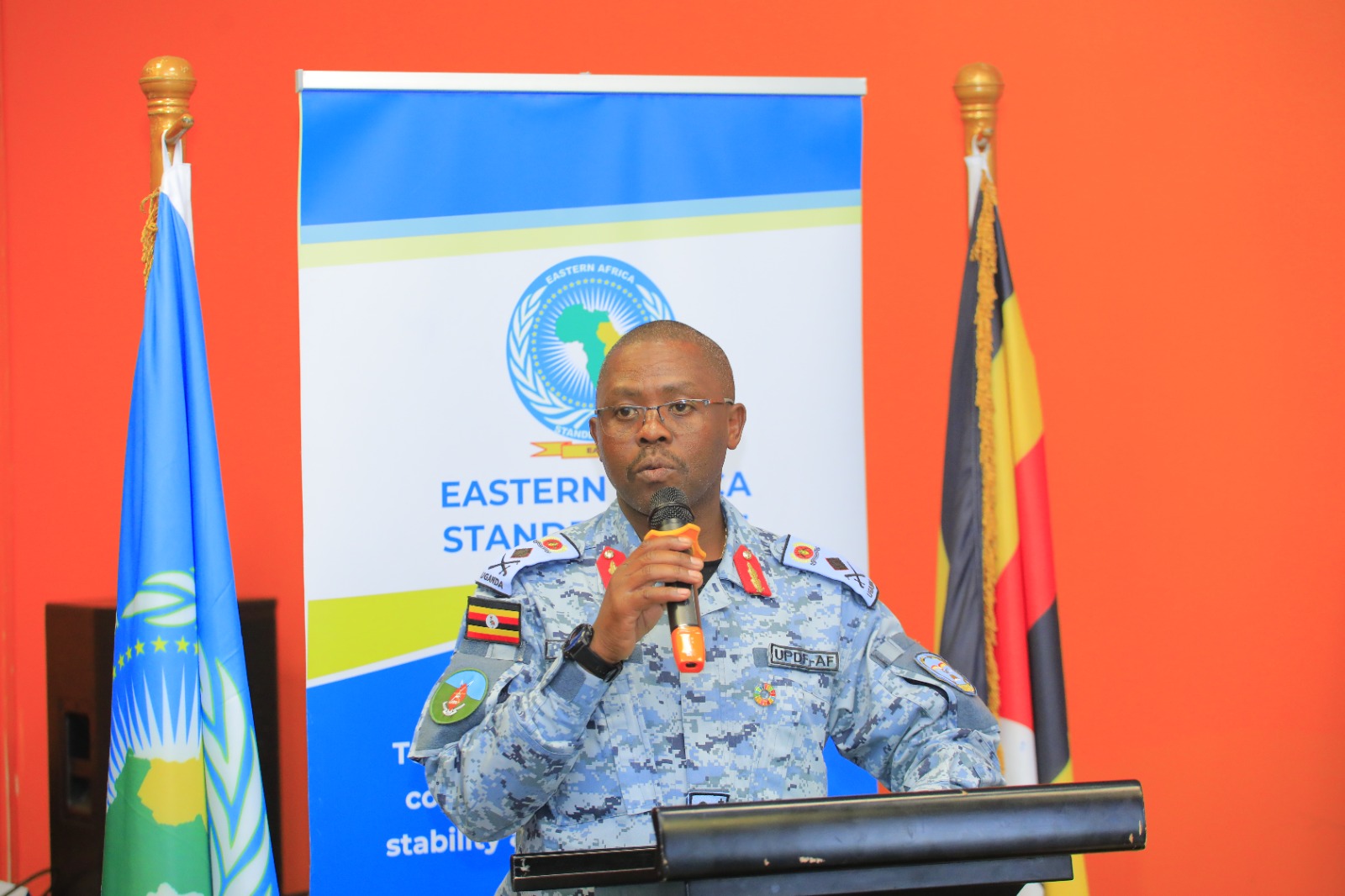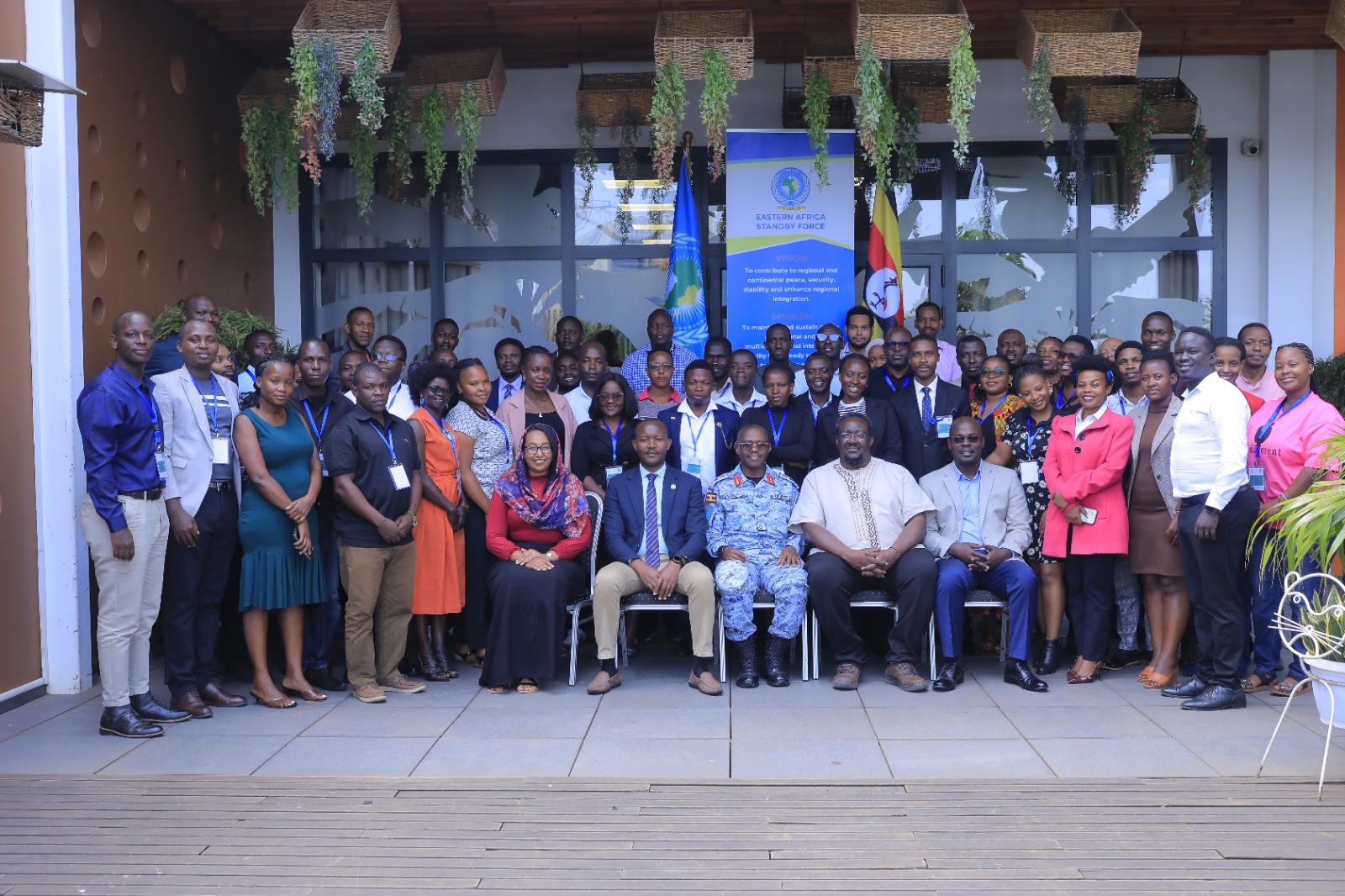The Eastern Africa Standby Force (EASF) has concluded a week-long Cyber Security and Cyber Terrorism Awareness Workshop in Kampala.
“We conclude this workshop with sharper knowledge, stronger networks and a new sense of collective responsibility to confront the evolving landscape of cyber threats,” remarked Maj. Faustin Ngaboyimanzi, an IT Officer at the Eastern Africa Standby Force as the workshop came to a close on Friday, in Kampala, Uganda.
Bringing together over 50 participants from the military, law enforcement agencies, correctional services, judiciary, cyber security institutions, policy makers, youth representatives, and media.
The workshop, held from November, 17 to 21 served as a timely platform to strengthen Africa’s collective cyber resilience.
Organized by the Eastern Africa Standby Force (EASF), the training aimed to raise awareness of the escalating risks posed by cyber-security threats and cyber-terrorism, while tooling participants with strategic skills to and shape the digital security environment.
The five-day session, which was woven with both theoretical and practical sessions, raised participants to an in-depth understanding of the rising cyber threats - building their capacity to prevent, detect, and respond to online incidents.
Throughout the sessions, facilitators made known the essence of human capital development and multilateral co-operation in redefining the cyber-security landscape, especially with the evolution of technologies such as artificial intelligence and quantum computing.
Dr. Martin Koyabe, one of the lead facilitators of the workshop, emphasized the need for enhanced cooperation among EASF member states, noting that cyber threats transcend borders and that collaboration is vital for collective defence as digital trade expands across the region.
The workshop covered a wide array of cybersecurity and cyber terrorism topics. It began by highlighting the Diplomatic, Informational, Military, and Economic (DIME) Framework, then delved into cyberterrorism, terrorism financing, and the impact of emerging technologies such as AI, encrypted platforms, and blockchain.
Participants engaged in topics like online radicalization, cyber threat intelligence, critical infrastructure protection, data protection principles, and digital forensics. The sessions progressed to open-source intelligence (OSINT) verification, adversarial machine learning, and concluded with a thoughtful discussion on the ethical balance between security, privacy, and freedom in cyberspace.
Reflecting on the experience, Maj. Ngaboyimanzi noted, “We have witnessed an exceptional spirit of cooperation, openness and shared Purpose. Policy makers, experts, ICT professionals and youth leaders have exchanged concerns, challenged assumptions, and forged meaningful connections.”
He also expressed gratitude to the leadership of the Republic of Uganda for their steadfast commitment to regional peace and security initiatives.

Uganda continues to be recognized for its comprehensive cybersecurity standing, guided by legislation and strategic initiatives such as the National Cybersecurity Strategy (2022–2026). The country currently ranks 12th in Africa according to the International Telecommunication Union’s (ITU) Global Cybersecurity Index.
Speaking at the same closing ceremony, the Guest of Honour, Brig Gen. David Gonyi, Chief of Staff, Uganda People’s Defence Air Force, praised the Eastern Africa Standby Force for convening the workshop, calling it timely and strategically important for the region.
He pointed out the growing importance of digital identity, data protection, digital forensics, and cross-border legal frameworks in combating cybercrime. Brig. Gen. Gonyi emphasized that as technology reshapes global economies and makes it easier to access goods and services, it also heightens risks that states must anticipate and mitigate.
Gonyi called on policymakers and national regulators to strengthen cyber laws and frameworks, noting that effective regulation is essential for safeguarding citizens, critical infrastructure, and national digital sovereignty. Collaboration across government agencies, law enforcement, and regional security entities, he said, remains crucial in countering emerging cyber threats.
Brig Gen. David Gonyi passed a vote of thanks to EASF, the Government of Uganda, and all facilitators for their contributions to the workshop’s success.
He officially declared the training closed, urging participants to apply the knowledge and skills gained to reinforce cybersecurity within their institutions and communities.


